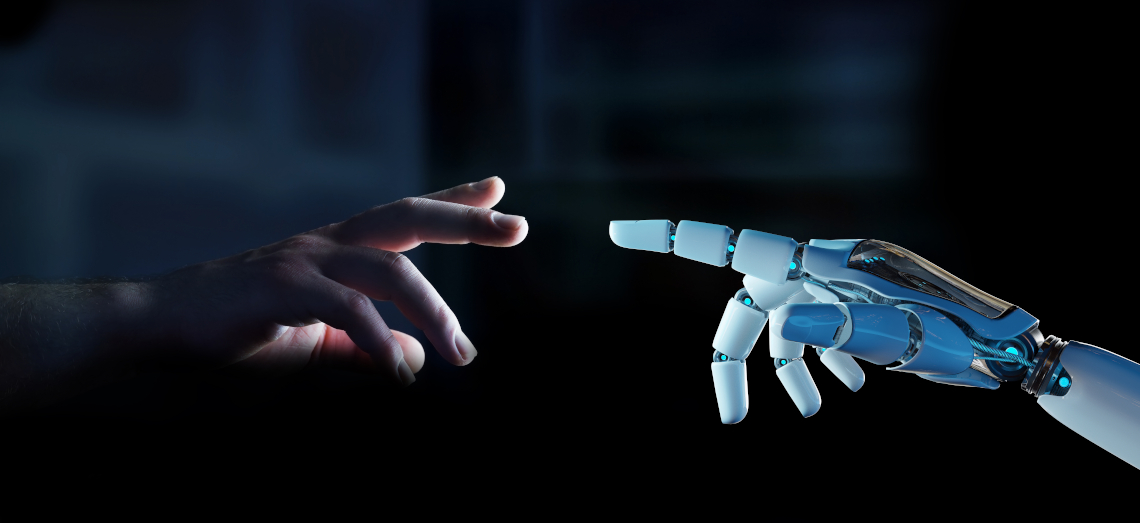Artificial Intelligence is one of the most important things humanity is working on. It is more profound than electricity or fire.
These are the words of Google CEO Sundar Pichai, speaking at an event last year. Comparing AI with electricity or fire may be a bold statement, but at the same time, it just might be true.
Artificial Intelligence seems to be on the track of taking over the world. It already affects many aspects of our modern lives, starting with Google results or Amazon suggestions of more things to buy to how we do our banking, how we communicate with people when we travel, how we drive (or don’t anymore, thanks to self-driving cars) or even how we date.
AI is a big part of the Fourth Industrial Revolution. Just like with all the things that revolutionized humanity, many people are afraid of it during the process. The short-term negative effects tend to overshadow the long-term benefits. The truth is, AI is killing many jobs. It already started to. Losing one’s job in favor of robots and intelligent machines is not a particularly great way to make people cheer for the continuous development of artificial intelligence. Opinions of high-caliber personalities like the late Stephen Hawking or Elon Musk don’t help either. Some people are right to be afraid.
On the other hand, AI is changing many other jobs and creating new ones — maybe even more than the ones it’s making redundant. Many industries are being transformed by the advancements in Artificial Intelligence.
At the same event mentioned above, Sundar Pichai goes on to say that we should all be thoughtful about AI; not too optimistic, but not too pessimistic either.
The L&D industry and AI
Training budgets are often the first to be cut when a business organization goes through a more difficult period. The professional development of employees often becomes an issue placed on the backburner because it can be hard to prove ROI for an organic and unique process like learning. But even though Artificial Intelligence can be the reason behind that period being difficult, it can also offer the best solution to get out of it.
The general idea regarding the impact AI will have on all things work is: businesses should adapt or fall behind. And in order to adapt, people within each organization have to learn. Constantly learn. So the need for Learning and Development initiatives and programs in all sorts of workplaces will definitely not disappear.
But L&D in its turn is being transformed by technology in general and Artificial Intelligence in particular. For instance, more and more learning technologies embrace adaptive learning systems, which are based on AI. Adaptive learning means the system learns about the learner as the learner learns. Based on the interests, prior knowledge and other preferences of the learner, adaptive learning systems can generate personalized learning paths for each trainee and adapt various aspects of the learning process to perfectly meet their needs.
Read more: Why adaptive learning is a ‘must’ in your corporate learning strategy
Face-to-face instruction could never do that on a large scale. But does all this means that face-to-face training will disappear?
Will AI make face-to-face training redundant?
This possibility is certainly on the table. But the final answer to this question is no. Artificial Intelligence will continue to transform how training is delivered, assessed and generally managed, just like e-learning has been doing that lately. Remember there was a time when face-to-face instruction was the only option of training? Placing training courses online has had many benefits for businesses of all sizes!
E-learning already frees up the time of trainers, allowing them to interact more — and better — with their trainees. The developments of AI in e-learning will only enhance that.
Trainers should not be afraid of how Artificial Intelligence will change their profession; they should embrace it and use it to their advantage. There are some things that simply can’t be taught by machines, but only by people. Learning is a deeply organic process and the human connection a trainer is able to develop with each trainee plays a crucial role in achieving positive learning outcomes.
Even though most of the creation of training materials and the delivery of training will be done online, this doesn’t mean trainers don’t need to supervise these processes. Human supervision and guidance will be needed even when AI systems will manage to do that flawlessly.
Lastly, face-to-face training can happen through technology. The use of videos in training materials is already a great strategy applied by many L&D professionals, as the technology is available for everyone, makes the entire learning process more interactive than any other online alternative and keeps trainees engaged.
As long as Artificial Intelligence will continue to develop and affect the L&D industry, who’s to say that face-to-face training won’t be enhanced by it?
Closing thoughts
Artificial Intelligence may be as important as fire or electricity have been for humanity. It does have the potential of changing our lives — for the better and also for the worse. Many industries will need to adapt faster than anyone thought possible if they are to meet the demands of the highly intelligent, interconnected world of tomorrow.
Continuous learning and development programs will play a crucial role in the success of companies in the near future. That’s why L&D professionals should not be afraid of losing their jobs. But they should be prepared to constantly adapt their practices. As long as people will continue to learn from people, face-to-face training will be around, albeit in various other, more high-tech forms.







